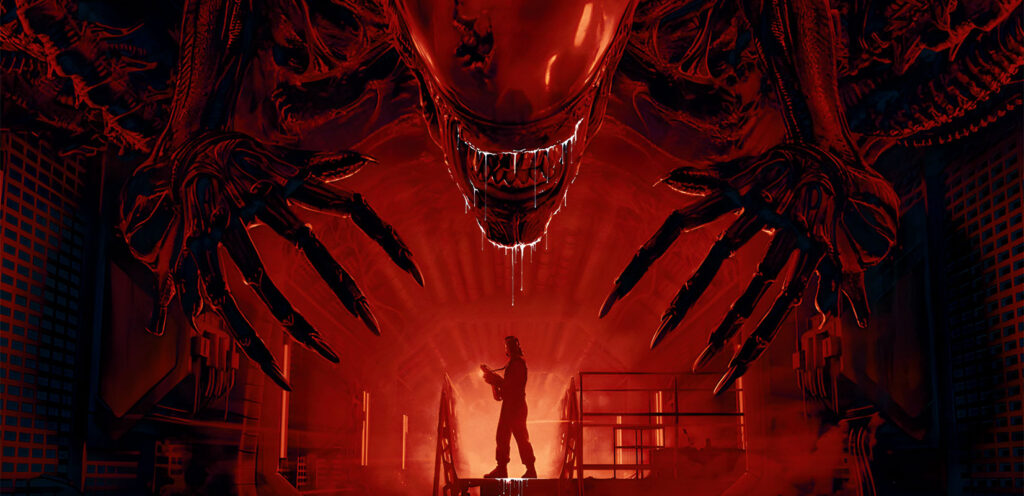Alien: Romulus presents an intriguing addition to the beloved Alien franchise. This latest entry by Fede Alvarez offers a blend of nostalgia and fresh perspectives on familiar themes. Audiences will experience a roller coaster ride of emotions, with intense highs that harken back to the series’ classic roots while encountering perplexing lows that may lead to divided opinions among fans.
From the beginning, Alien: Romulus immerses you in the atmospheric tension that has become synonymous with the franchise. The film pays homage to the slow burn, eerie, and claustrophobic tone of Ridley Scott’s original Alien. The haunting score and meticulous cinematography instantly transport you back to the series’ classic roots, evoking the same dread that gripped audiences decades ago.
However, as the film unfolds, it becomes evident that Alien: Romulus is not merely a tribute to the original but a bridge between the classic and contemporary aspects of the franchise. This is where the film both shines and stumbles. The connection to Alien is undeniably a strength, with familiar motifs and themes that will satisfy long-time fans. But there are also nods to other, more controversial aspects of the series’ lore. Depending on one’s perspective, the film’s willingness to delve into these aspects can be seen as either a bold move or a misstep.
Alien: Romulus is a thrilling yet divisive entry in the Alien franchise, blending nostalgia with bold choices that will spark debate among fans.
One of the most significant turning points in Alien: Romulus occurs during the third act. Until that moment, the film carefully balances its influences, maintaining a steady and engaging pace. However, as the narrative reaches its climax, the story takes a sharp turn that will likely polarize audiences. This change in trajectory might be seen as a daring shift for some, introducing new ideas and pushing the boundaries of the franchise. For others, however, it could feel like a departure from what makes Alien so iconic. I found this shift less compelling, but I recognize that others may appreciate this bold choice. It’s a moment that will undoubtedly spark debate among fans, making it one of the film’s most talked-about aspects.
On a positive note, Alien: Romulus continues the franchise’s tradition of featuring complex artificial characters. Andy, the film’s synthetic being, is charming and unsettling, embodying the duality central to the series’ exploration of artificial intelligence. The film skillfully plays with these themes by eliciting both empathy and fear for Andy from the audience. Furthermore, Andy’s relationship with Rain is central to the film, providing its emotional core. In addition, the film’s high points are intricately tied to their dynamic.
It’s impossible to discuss Alien: Romulus without acknowledging Galo Olivares’ breathtaking cinematography. Much like the original Alien, the film’s visual style is awe-inspiring, capturing space’s desolate beauty and lurking terror. The film’s detailed set design and lighting create a cinematic experience that is visually striking and thematically resonant.
Overall, Alien: Romulus is a mixed bag, with moments of brilliance tempered by some questionable narrative choices. Its connection to the broader Alien universe will either thrill or frustrate viewers, depending on their attachment to the franchise’s evolving mythology. Yet, despite its flaws, the film remains a visually captivating and thought-provoking entry that will undoubtedly spark conversation among fans.
Rating: 3/5 atoms

Alien: Romulus hits theaters on August 16th.






